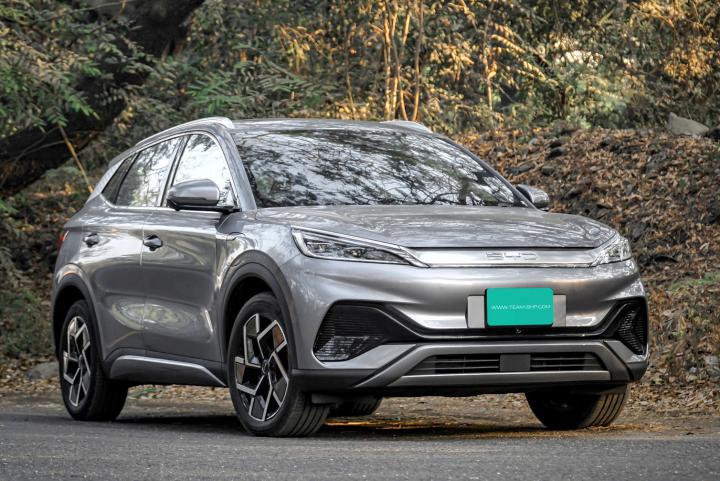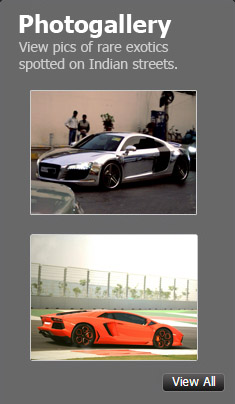News
Would you consider buying an EV made by a Chinese company?
They offer desirable designs, game-changing EV battery tech (Blade battery by BYD) and now, the icing on the cake, NCAP reassurance.
BHPian Quicksilver85 recently shared this with other enthusiasts.
Hello TBHPians,
I want to understand what is the appetite of my fellow BHPians to own a well-priced EV made by a Chinese manufacturer.
A recent report on IAB shows 3 Chinese EVs achieving the 5-star NCAP rating. This should not come as a surprise, Chinese-made EVs are leap-frogging the established players in the automotive space in providing EVs with desirable designs (Courtesy of lateral hiring of competitor designers), game-changing EV battery tech (Blade battery by BYD), and now the icing on the cake, NCAP reassurance.
For those of you who want to understand my stand before you feed in your thoughts, I never paid attention to these Chinese EVs (MG ZS, MG Comet, BYD Atto 3 etc), but, the more time spent on YouTube, I hear praises from International auto journos (CarWow and a few more I don't recall), I kind of coming to realize the eventual reality, Chinese EVs will be here in India directly (BYD/MG) or indirectly (Tech transfer/collaborations with domestic companies).
Questions to answer:
- Would you consider an EV made by a Chinese manufacturer if not now, maybe 5 years down the lane? Yes/No. What are the reasons?
- At what price point compared to the current Nexon EV Long Range? Below or above?
- Would you wait for other markets' experiences to see how durable these products would be in the long before deciding?
- What is your biggest concern with a Chinese-made EV? (Durability/Reliability? Data Privacy? Build quality/Quality concerns?)
Here's what GTO had to say about the matter:
100% yes. China - as a country - is becoming the emperor of EVs. They lost out on petrol & diesel cars, but then bet the house on EVs. And it shows. Just drive the MG ZS EV or the BYDs and you'll see how sorted they are. Their expertise in EVs shows.
Personally, I don't support CBUs and am glad that India has stiff make-here-to-sell-here custom duties that encourage local manufacturing. MG India employs thousands of Indians & has made investments in India. Why would I not buy an MG?
In today's truly global economy, one cannot reject a product because of where its parent is from. Go check the gadgets in your household and see how many are made in China. Do you know how many Chinese components there are in the Tata & Mahindra EVs?
Here's what BHPian DicKy had to say about the matter:
NO.
Call it jingoism or whatever. Stubbornly stand by it.
And even if buying a Chinese product is unavoidable, I stand by three exceptions:
- Assembled using Chinese parts, But Made in India.
- By a non-Chinese company, but Made in China.
- Worst case. Made by a Chinese company, but Made in India.
It is stupid I know, makes shopping much more difficult. However, in recent years, it has become much easier with many products like toys and electronics having a 'Made in India' tag.
No, it may have components Made in China or in fact, may have been wholly assembled using parts from China, but none of the electronic items or smartphones in my household have a 'Made in China' plate.
But that is for other items. For EVs? Heck, even cars? No way. The Nexon is a kit car made with Chinese batteries and motors AFAIK, but I would buy that contraption rather than buying an international quality MG ZS EV. Yeah, am that stupid. Would have bought the overpriced dinky Comet if it was non-Chinese cause it fits our needs for a runabout to the T. Would have bought the Chevrolet Enjoy if it was not Chinese.
As car enthusiasts, we have our irrational, emotional reasons. Treat this as one.
Here's what BHPian ike had to say about the matter:
I would consider all cars available in the segment if I were car shopping and not exclude any cars for something as trivial as the country of origin. Rather than giving into meaningless jingoism and rhetoric, you should be getting what suits your requirements the best, whether it is now or later irrespective of whether it is a car that you are getting or something else.
Here's what BHPian electric_eel had to say about the matter:
I will definitely consider if it is a reputed firm like BYD, MG etc. However, I would like to keep the cars for long (as long as possible) and would like to be sure that spare and services are available. On the other hand, I have privacy concerns with the so-called connected car features whether it is from Tesla, Tata or BYD.
Here's what BHPian lazy had to say about the matter:
I'll never buy a Chinese EV or even a non-EV.
I consciously avoid buying anything made in China or Chinese brand products. Been serious about this since the Doklam incident.
Before anyone asks - yes, there are quite a few imported products at home, but Chinese (branded or made) products are bought only and only if there are no alternatives available.
Here's what BHPian V.Narayan had to say about the matter:
Just purchased a Volvo C40 EV. Is it a Chinese product - Geely owns Volvo now. Or is it a Swedish product? Are Tata EVs with batteries and other significant parts imported from China an Indian product or a Chinese product? All cars built in India have parts from China! It is like some part of the world saying can we buy software untouched by a software developer from India. It is an interconnected world.
Take an illustration - raw materials imported from Africa, and Australia go into making parts/machinery for Hyundai which are then exported to India where they are assembled along with other parts made in India, South Korea and Thailand. The car is then sold by Hyundai in Brazil. Is it a South Korean car or is it an Indian car? - and what about its Chinese content?
As patriotic Indians, we have reason to be angry about Doklam and Galwan and the double games played by the current Chinese Govt, but not buying what we perceive to be a Chinese brand {e.g. BYD} but buying what we perceive to be a European brand {e.g. Volvo} won't help.
IMHO encouraging larger investments by China into Indian industry thus rebuilding our manufacturing base is the way to go. Certain security risk sectors such as telecom, networks, and power plants would be some no-go areas but the rest should be permitted.
Check out BHPian comments for more insights and information.





.jpg)








.jpeg)




